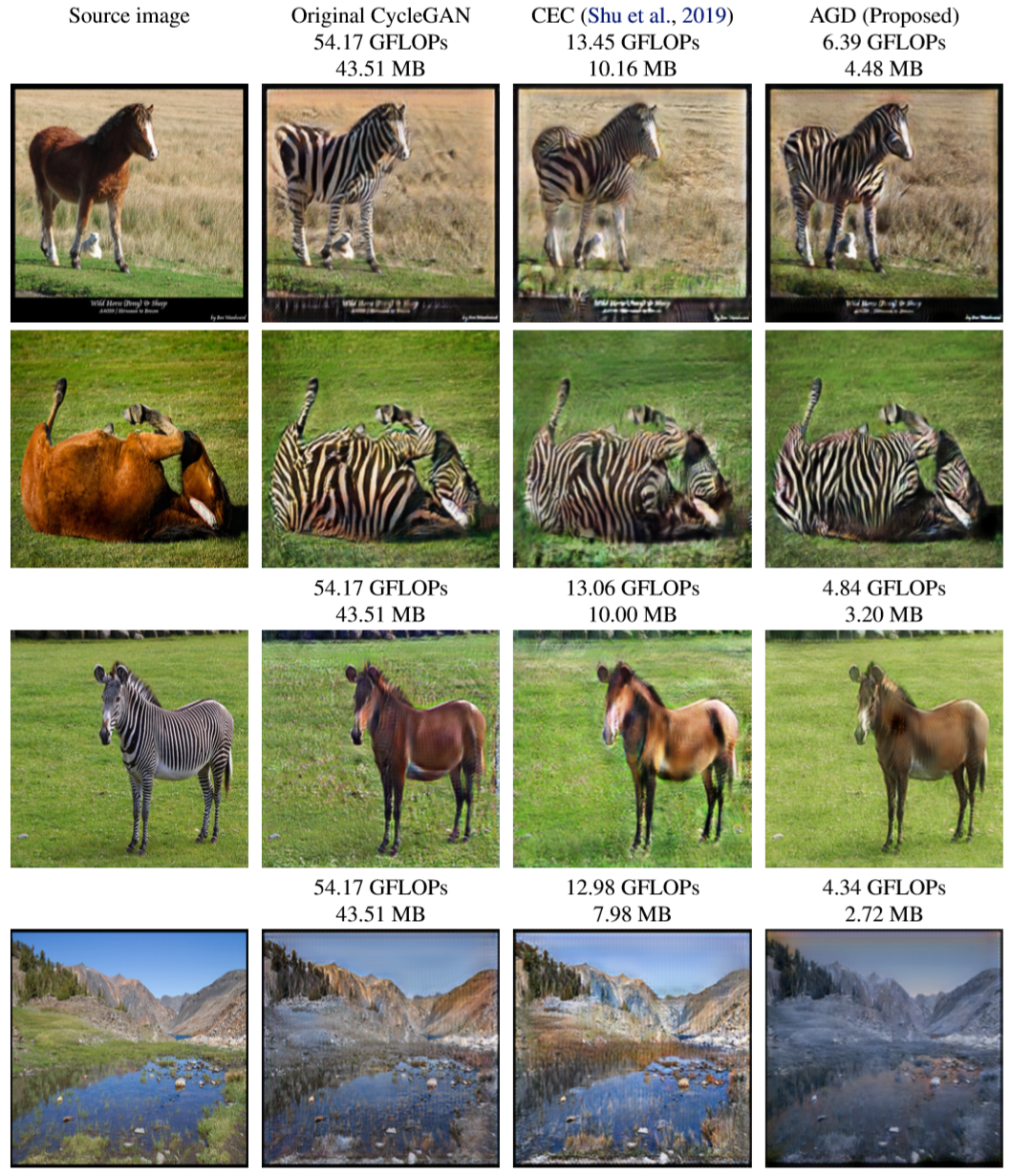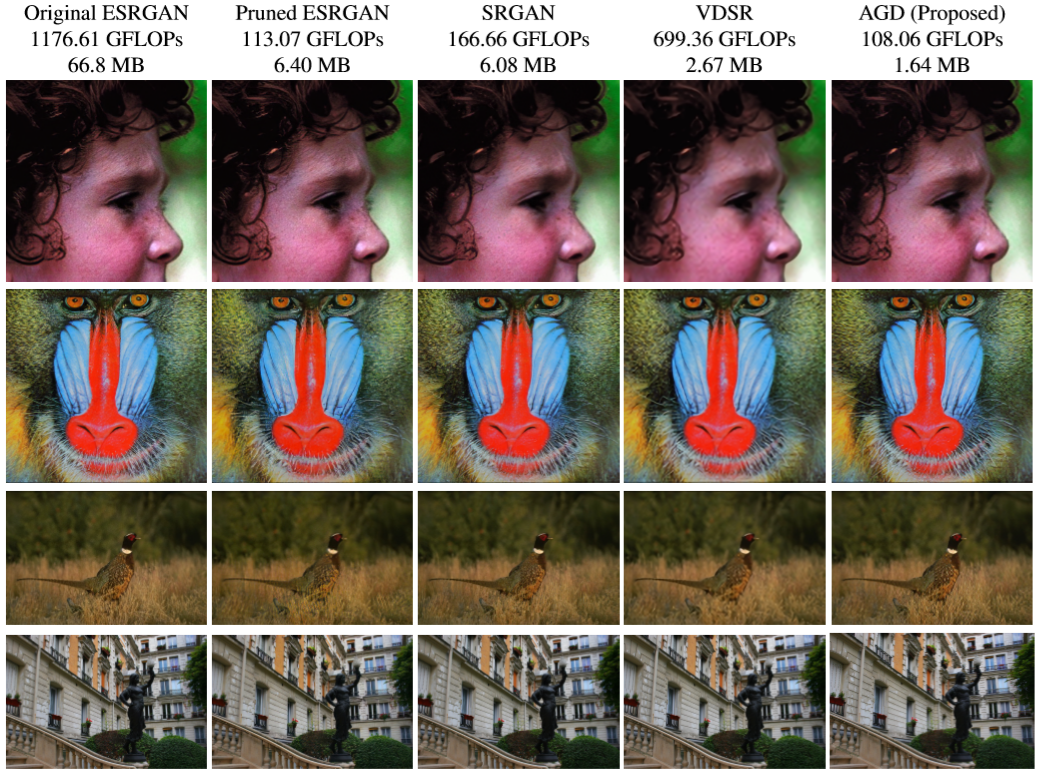Yonggan Fu, Wuyang Chen, Haotao Wang, Haoran Li, Yingyan Lin, Zhangyang Wang
Accepted at ICML 2020 [Paper Link].
We propose AutoGAN-Distiller (AGD) Framework, among the first AutoML frameworks dedicated to GAN compression, and is also among a few earliest works that explore AutoML for GANs.
- AGD is established on a specifically designed search space of efficient generator building blocks, leveraging knowledge from state-of-the-art GANs for different tasks.
- It performs differentiable neural architecture search under the target compression ratio (computational resource constraint), which preserves the original GAN generation quality via the guidance of knowledge distillation.
- We demonstrate AGD on two representative mobile-based GAN applications: unpaired image translation (using a CycleGAN), and super resolution (using an encoder-decoder GAN).
Unpaired image translation:
Super Resolution:
horse2zebra, zebra2horse, summer2winter, winter2summer: Unpaired-dataset
Training (DIV2K+Flickr2K): SR-training-dataset
Evaluation (Set5, Set14, BSD100, Urban100): SR-eval-dataset
AGD_ST and AGD_SR are the source codes for unpaired image translation task and super resolution task respectively. The codes for pretrain, search, train from scratch and eval are in the AGD_ST/search and AGD_SR/search directory.
We use AGD_ST/search as an example. All the configurations during pretrain, search, train from scratch, eval are in config_search.py, config_train.py and config_eval.py respectively. Please specify the target dataset C.dataset and change the dataset path C.dataset_path in the three config files to the real paths on your PC.
See env.yml for the complete conda environment. Create a new conda environment:
conda env create -f env.yml
conda activate pytorch
In partiqular, if the thop package encounters some version conflicts, please specify the thop version:
pip install thop==0.0.31.post1912272122
- Switch to the
searchdirectory:
cd AGD_ST/search
-
Set
C.pretrain = Trueinconfig_search.py. -
Start to pretrain:
python train_search.py
The checkpoints during pretraining are saved at ./ckpt/pretrain.
-
Set
C.pretrain = 'ckpt/pretrain'inconfig_search.py. -
Start to search:
python train_search.py
-
Set
C.load_path = 'ckpt/search'inconfig_train.py. -
Start to train from scratch:
python train.py
- Set
C.load_path = 'ckpt/search'andC.ckpt = 'ckpt/finetune/weights.pt'inconfig_eval.py. - Start to evaluate on the testing dataset:
python eval.py
The result images are saved at ./output/eval/.
Please download the checkpoint of original ESRGAN (teacher model) from pretrained ESRGAN and move it to the directory AGD_SR/search/ESRGAN/.
The step 3 is splitted into two steps, i.e., first pretrain the derived architecture with only content loss and then finetune with perceptual loss:
-
Pretrain: Set
C.pretrain = Trueinconfig_train.py. -
Finetune: Set
C.pretrain = 'ckpt/finetune_pretrain/weights.pt'inconfig_train.py.
Pretrained models are provided at pretrained AGD.
To evaluate the pretrained models, please copy the network architecture definition and pretrained weights to the corresponding directories:
cp arch.pt ckpt/search/
cp weights.pt ckpt/finetune/
then do the evaluation following step 4.
Please also check our concurrent work on a unified optimization framework combining model distillation, channel pruning and quantization for GAN compression:
Haotao Wang, Shupeng Gui, Haichuan Yang, Ji Liu, and Zhangyang Wang. "All-in-One GAN Compression by Unified Optimization." ECCV, 2020. (Spotlight) [pdf] [code]

